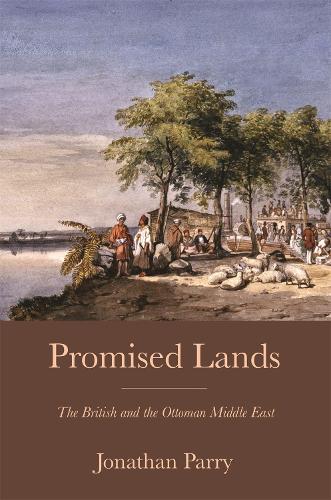
Promised Lands: The British and the Ottoman Middle East
(Hardback)
Available Formats
Publishing Details
Promised Lands: The British and the Ottoman Middle East
By (Author) Jonathan Parry
Princeton University Press
Princeton University Press
1st June 2022
United States
Classifications
General
Non Fiction
327.41056
Physical Properties
Hardback
480
Width 155mm, Height 235mm
Description
A major history of the British Empires early involvement in the Middle East
Napoleons invasion of Egypt in 1798 showed how vulnerable India was to attack by France and Russia. It forced the British Empire to try to secure the two routes that a European might use to reach the subcontinentthrough Egypt and the Red Sea, and through Baghdad and the Persian Gulf. Promised Lands is a panoramic history of this vibrant and explosive age.
Charting the development of Britains political interest in the Middle East from the Napoleonic Wars to the Crimean War in the 1850s, Jonathan Parry examines the various strategies employed by British and Indian officials, describing how they sought influence with local Arabs, Mamluks, Kurds, Christians, and Jews. He tells a story of commercial and naval powerboosted by the arrival of steamships in the 1830sand discusses how classical and biblical history fed into British visions of what these lands might become. The region was subject to the Ottoman Empire, yet the sultans grip on it appeared weak. Should Ottoman claims to sovereignty be recognised and exploited, or ignored and opposed Could the Sultans government be made to support British objectives, or would it always favour France or Russia
Promised Lands shows how what started as a geopolitical contest became a drama about diplomatic competition, religion, race, and the unforeseen consequences of history.
Reviews
"Parrys magisterial history of Britains arrival in Ottoman lands relates these lurches from masterstroke to misadventure with mordant precision."---Michael Ledger-Lomas, The Critic
"Parrys pen-portraits of a range of British politicians, diplomats, merchants and men on the spot are marvellous; the book is so rich in detail that its story is sometimes hard to follow. But his main contention, that by the outbreak of the Crimean War in 1854 Britain had staked a claim to everywhere it ended up ruling after 1918, stacks up. And this tale of how a rising trading power exploited greed to acquire insidious political influence is worth reading for its relevance today."---James Barr, Engelsberg Ideas
"Handsomely produced. . . . [and] deeply instructive."---Jeremy Black, New Criterion
Author Bio
Jonathan Parry is professor of modern British history at the University of Cambridge and a fellow of Pembroke College. His books include The Politics of Patriotism: English Liberalism, National Identity, and Europe, 18301886. He is a frequent contributor to the London Review of Books. Twitter @JonParryHis
